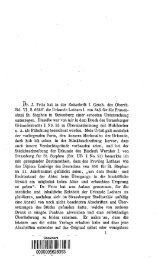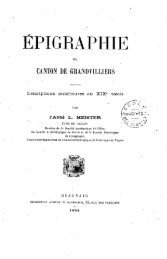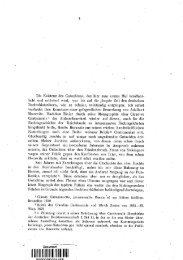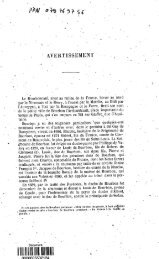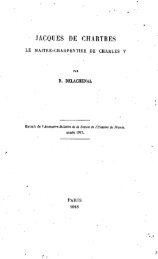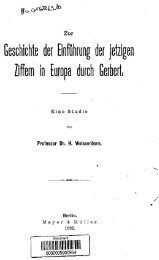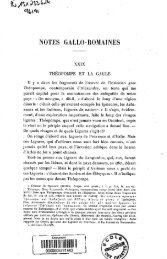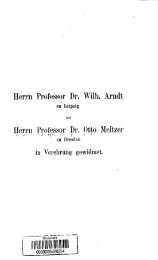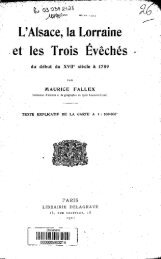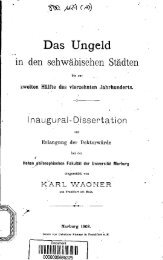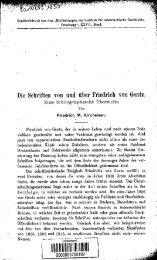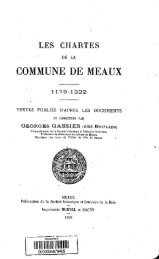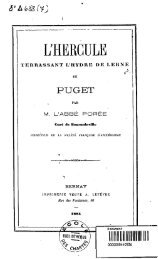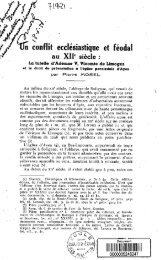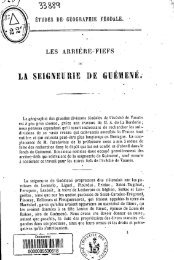4P Li gç(' TRANSACTIONS
4P Li gç(' TRANSACTIONS
4P Li gç(' TRANSACTIONS
You also want an ePaper? Increase the reach of your titles
YUMPU automatically turns print PDFs into web optimized ePapers that Google loves.
792 LE LIVRE DE YCONOMIQIJE D'ARISTOTE [TRANS. AMI:R. PHIL. Soc.<br />
heliocentric s ystem, rejected b y Aristotle, was revived<br />
by Jean Buridan in his Quacsfiones super libris de coelo<br />
et mundo "I and, according to modern standards of<br />
scholarship, Oresme should have acknowledged this borrowing<br />
in his gloss. His originality in this connection<br />
is thus reduced to the fact that he was first to give expression<br />
to the concept in a modern language. Something<br />
of his enthusiastic love of learning as well as his<br />
pride of authorship is revealed in the colophon of this,<br />
perhaps his greatest work:<br />
And thus with God's help, I have finished the Book of the<br />
heavens and the earth by command of the excellent prince<br />
Charles V, by the grace of God king of France who has<br />
made me bishop of <strong>Li</strong>sieux as my reward. And in order<br />
to enthuse, excite and move the hearts of those young men<br />
who have subtle and noble minds and a desire for knowledge,<br />
so that they may be moved to challenge me and reply<br />
to my arguments out of love and desire for truth, Iventure<br />
to say and maintain that no mortal man has ever seen<br />
a finer or better book of natural philosophy than this one,<br />
either in Hebrew, in Greek, in Arabic, in Latin or in<br />
French.4<br />
The <strong>Li</strong>vre du ciel at du monde was completed in<br />
August, 1377. Oil 8 of that year he was paid<br />
two hundred francs from the royal treasury, and a few<br />
weeks later Pope Gregory XI confirmed his nomination<br />
by the king to the bisho1)ric of <strong>Li</strong>sieux. The ceremony<br />
of elevation was performed in Rouen Cathedral on<br />
August 3, 1378. The long collaboration between king<br />
and cleric ended when Charles V died in September,<br />
1380. Oresme survived his generous royal patron by<br />
less than two years. I-Ic (lied in the bishop's palace<br />
at <strong>Li</strong>sieux on July 11, 1382, and was buried in his<br />
cathedral church. No trace of his tomb exists today.<br />
2. THE TRANSLATION AND THE COMMENTARY<br />
In his Preamble to the <strong>Li</strong>vre de Etli-iqucs Oresme<br />
states clearly his conception of the translator's role: "I<br />
must be excused" he wrote, "if I do not express myself<br />
as clearly, as precisely and as methodicall y as might he<br />
desired; for I do not dare depart from Aristotle's text,<br />
which is often obscure, lest I miss his meaning and misinterpret<br />
him." With this as his guiding principle, we<br />
should expect a very literal rendering of the Latin ver-<br />
1. Double tra-i-siation:<br />
YCONOM IQUE<br />
Et donques convient vcoir at considerer de vconomie et<br />
queUe est le cevre de elle. (fol. 330h).<br />
Et pour ce, ii convient bien disposer at ordonner las<br />
C/loses qui stint quant a traic far de la famine, ce est<br />
assavoir quelle elle doit estre faicte par bonne instruction<br />
et par enseignentens ( 330b)<br />
Rook II, Quaestio 22. ed. Moody. pp. 226 233.<br />
Idein, Mediaeval Sfudis 3: 231, 1943; fol. 203c.<br />
sions he employed. Actually, however, Oresme was<br />
motivated primarily by his desire to reproduce Aristotle<br />
in such manner that the complex ideas could be easily<br />
and readily grasped and understood by French readers<br />
previously unschooled in such highly intellectual exercise.<br />
Therefore, although he followed his principle in<br />
general, his translations cannot be rightly called literal<br />
the exceptions are too frequent and too notable.<br />
In the first place, he devised the idea of dividing the<br />
original Books into relatively short chapters, supplying<br />
a descriptive title for each. At the beginning of each<br />
Book he placed a complete list of these chapter headings<br />
to serve at once as a table of contents and as an<br />
index for the reader's convenience; this scheme he<br />
adapted from the similar practice used by the Sclioolnien<br />
in their Latin commentaries. At the end of the Politiques<br />
and the <strong>Li</strong>tre du ciel et dii nwnde he added a<br />
table de notables, a simple summary of the subjects<br />
treated in each Book; in the Ethiques and Politiques he<br />
drew up an alphabetical glossary of the difficult and<br />
rare words—a Table dc fors inots—with definitions and<br />
place references. The combination of these several aids<br />
to the reader was a definite innovation in fourteenthcentury<br />
bookmaking; for it Oresme deserves more than<br />
the scanty notice he has received from the historians of<br />
the art of the hook. In the case of the }7conomiqu.e he<br />
explains that the omission of a glossary is due to the<br />
close similarity of its vocabulary to that of the Politiques<br />
and he refers the reader to tile Table de fors mots in this<br />
latter work.<br />
These are, of course, purely external changes from the<br />
arrangement found in his Latin originals. When we<br />
examine his rendering of the Latin original of the<br />
Ycononuque, we find him deviating from the Latin text<br />
chiefly in three ways : ( 1 ) double translation—one Latin<br />
word is rendered by two or niore French equivalents of<br />
synonymous meaning; (2) occasional interpolations of<br />
short phrases or clauses to render an idea more clearly<br />
or more full y ; (3) rare omissions of a phrase or a<br />
sentence in the original, usually explainable as the<br />
avoidance of all<br />
or concept totally alien to a four-<br />
teenth-century French reader. A fe w exanipies of these<br />
departures front literal translations will demonstrate<br />
their nature:<br />
OECONOMIcA<br />
l-'idenduin ergo de oeconornica, et quid opus ipsius.<br />
Propter quod decet ea, quae stint de co-n junctione uxoris<br />
bene ordnare: hoc autem est qiialeni eani (lecet esse<br />
praevidere.



